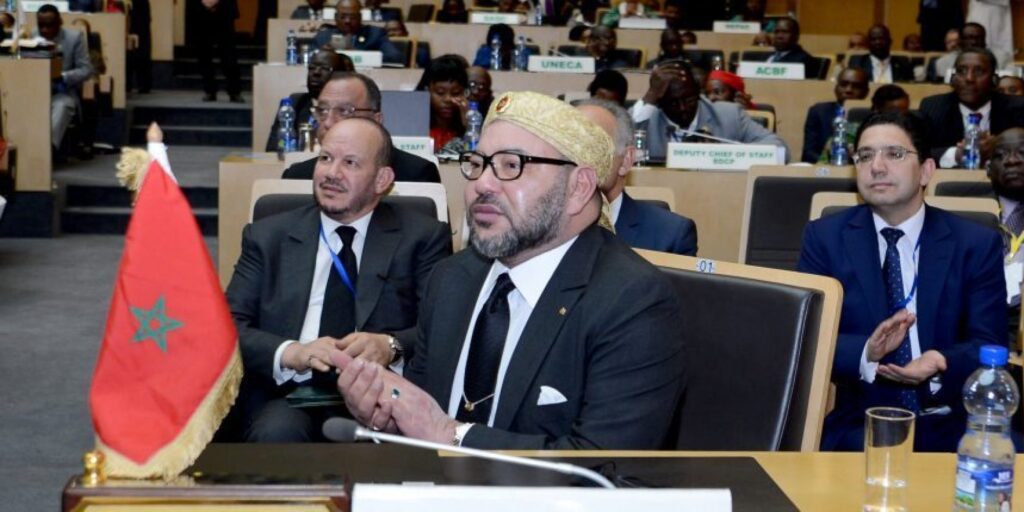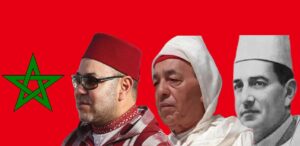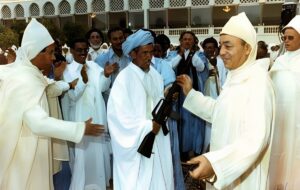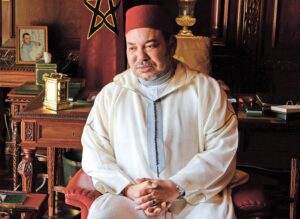The Era of Mohammed VI... Third: Politics and Diplomacy... Stability, Initiative, and Acting as an Effective Leader

Just as King Mohammed VI's influence was clearly evident in the security field, this influence was no less evident in the political-diplomatic sphere, particularly given that foreign policy is the exclusive constitutional prerogative of His Majesty the King, who directs its direction and issues its decisions through the relevant agencies. Here, it is theoretically possible to distinguish between Morocco's domestic and foreign policy, for the sake of clarity and nothing more. On the domestic policy front, King Mohammed VI has appeared to be extremely careful to strictly adhere to the provisions of the constitution, and thus has dealt with the results of the legislative elections with great caution. Although the constitution stipulates that the king may select the prime minister from the winning party, without restricting this to the party leader exclusively, he has preferred to deal with the heads of the winning parties as a matter of custom, despite the potential for bringing "populist figures" to the premiership, as happened with the Secretary-General of the Justice and Development Party, Abdelilah Benkirane. Although King Mohammed VI seemingly broke with this tradition when he appointed an independent (Driss Jettou) to head the second government of his reign (2002-2007), the reality is that the elections failed to produce a clear winner after the winning camp (the Democratic Bloc and its two parties, the Socialist Union Party and the Independence Party) disputed who should head the government. Here, and in the absence of a binding constitutional clause (the appointment of a figure from the winning party as prime minister was not established until the 2011 constitution), King Mohammed VI decided to prioritize the national interest, the spirit of the constitutional texts, and the customs of Moroccan political practice, and chose a figure from outside the two winning parties.
This commitment to domestic political stability has yielded results through foreign investments that have found in Morocco a stable "oasis" in a volatile regional environment. Tunisia under Kais Saied is far from political stability after demolishing the country's established democratic foundations and choosing to redefine democratic political action in a capricious, acrobatic manner that has cost Tunisia dearly. Libya, since the ouster of the late Muammar Gaddafi, remains far from stable, with its institutions, army, executive branch, and legislative authority divided between the eastern and western centers. Mauritania, which enjoys relative stability compared to its neighbors, remains governed by the personal visions of its leaders, who are either close to or distant from existing regional axes. As for Algeria, ruled by military regimes since its supposed independence from France, its ruling authorities have succeeded in thwarting its popular movement and closing any window that might bring with it a breath of democracy! Therefore, its regime, which lacks popular legitimacy, has in fact expired decades ago, and is unable to provide its citizens with any real benefit, apart of course from the lies of its propaganda regime, and the statistics and imaginary promises of its president!!

Turning to foreign policy, successes no less than those achieved domestically can be recorded. We will focus only on those of a strategic nature, which justify the notion that the reign of King Mohammed VI is, in fact, a fully fledged "era." Here, the two fundamental qualities we discussed earlier become apparent: courage and foresight. If we limit our demonstration of his courage to a single example, it suffices to mention his personal involvement in what is known in Arab political literature as "joint Arab action," despite the fact that everyone knows that what emerges from Arab summits cannot be described as action; it is not motivated by Arab interests; and it has no connection to partnership at all! In keeping with the young king's commitment, upon assuming power, to continuing the legacy of his late father, King Hassan II, which made Morocco the country that hosted the largest number of Arab summits, King Mohammed VI attended all Arab summits held between 2000 (the extraordinary summit in Cairo) and 2005 (the Algiers summit), as well as those in Amman in 2001, Beirut in 2002, Sharm el-Sheikh in 2003, and Tunis in 2004. However, his honesty and exceptional courage did not stop at boycotting all Arab summits held after 2005; he also refused to host the 27th summit, instructing the Ministry of Foreign Affairs to issue a statement explaining the reasons for this boycott, in language that does not allow for any interpretation. One of the most prominent points of the 2007 statement was that Arab summits do not present any significant initiatives or decisions, and therefore are merely "an occasion to ratify ordinary recommendations," following speeches that "give a false impression of unity and solidarity among the countries of the Arab world." Accordingly, Morocco "looks forward to holding an Arab Awakening Summit and renewing joint Arab action and solidarity, as the only way to restore hope to the Arab peoples." This language, which marked a break with the official Arab political heritage, was the focus of popular acclaim across the Arab world, from the Atlantic Ocean to the Gulf.
Examples of a forward-looking vision include the decision, which required great courage and boldness, to return to the African Union in 2017, while the "Tindouf Republic" still held a seat in its meeting room. Breaking with the empty seat elevated Moroccan-African relations to unprecedented levels, with King Mohammed VI personally shouldering the lion's share of these visits through his visits to various countries on the continent. Suffice it to say that the number of visits to Africa by King Mohammed VI from 2000 to 2018 reached 48, while the number (after Morocco's return to the African Union) since 2018 has been around 30, ranging from one-off visits to recurring visits, depending on the country's importance to Morocco. Thus, throughout his reign, King Mohammed VI has visited most African countries, transforming his philosophy of what inter-African relations should be based on (South-South cooperation within a win-win framework) from theoretical slogans to practical, lived action.
In addition to the above, there is a series of Moroccan initiatives for the benefit of the African continent, starting with an effective contribution to combating terrorism that plagues many countries on the continent, through ensuring food security (fertilizers) and medicine (vaccines), and ending with the initiative to link the landlocked Sahel countries (Chad, Niger, Burkina Faso, and Mali) to the Atlantic Ocean; linking 13 countries to the Nigerian-Moroccan gas pipeline, providing energy to these countries; and the initiative to establish a strategic framework for the 23 African countries bordering the Atlantic Ocean (the South Atlantic Treaty Organization), similar to its northern counterpart, in a step that is expected to later include the Latin American countries that occupy the eastern shore of the South Atlantic, which could create a giant global geostrategic player.
It should not be missed here that one of the most significant successes of Moroccan diplomacy in the "era of Mohammed VI" has been its ability to forge strategic relationships with conflicting international powers, such as the United States, China, India, Russia, and the European Union, not to mention smaller and less prominent countries such as Brazil, Japan, and Turkey. This relationship, almost unparalleled in international politics, has made Morocco an independent rival to all these countries. Although the size and power of each differ, they share a common respect for Morocco's sovereign decision not to engage in conflicting axes. This does not mean that its international options are unclear!
In conclusion, Morocco’s approach to a final settlement of the fabricated dispute over the Moroccanness of its southern provinces will undoubtedly be the “grand prize” that will always be associated with the era of Mohammed VI, who has employed all sources of Moroccan power to gain it, regionally, continentally, and internationally, including its security, political, economic, social, and symbolic (soft) power. This will free it from the restrictions that this issue placed on its international movement outside its immediate surroundings!





